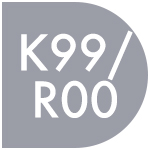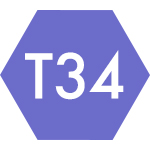This resource is intended to give a broad overview and helpful links to common NIH funding mechanisms. It is not exhaustive. Mechanisms shown here are the "Parent" announcements where no clinical trials are allowed or clinical trials optional: please be sure to check for focused funding opportunity announcements. We also recommend using additional tools like NIH REPORTER, NIH MATCH MAKER and PIVOT.
If you have any suggestions for this page, please let us know.
Common NIH mechanisms
 Research Awards
Research Awards
 NIH Research Project Grant (Parent R01 Clinical Trial Not Allowed) - Application budgets are not limited but need to reflect the actual needs of the proposed project. Requests that are limited to $250,000 per year will use the modular budget format. The maximum project period is 5 years. The R01 mechanism supports a discrete, specified, circumscribed project in areas representing the specific interests and competencies of the investigator(s). The proposed project must be related to the programmatic interests of one or more of the participating NIH Institutes and Centers (ICs) based on their scientific missions.
NIH Research Project Grant (Parent R01 Clinical Trial Not Allowed) - Application budgets are not limited but need to reflect the actual needs of the proposed project. Requests that are limited to $250,000 per year will use the modular budget format. The maximum project period is 5 years. The R01 mechanism supports a discrete, specified, circumscribed project in areas representing the specific interests and competencies of the investigator(s). The proposed project must be related to the programmatic interests of one or more of the participating NIH Institutes and Centers (ICs) based on their scientific missions.
 UC MERCED IS NO LONGER ELIGBLE FOR THE R15 AREA or REAP OPPORTUNITIES as of October 1, 2024. We will keep this information on our website should we become eligible once more in coming years. Please consult your HSRI Research Administrator to ensure that the university is eligible for the R15 mechanism before proceeding.
UC MERCED IS NO LONGER ELIGBLE FOR THE R15 AREA or REAP OPPORTUNITIES as of October 1, 2024. We will keep this information on our website should we become eligible once more in coming years. Please consult your HSRI Research Administrator to ensure that the university is eligible for the R15 mechanism before proceeding.
Academic Research Enhancement Award (Parent R15 Clinical Trial Not Allowed) - $375,000 total direct cost cap (less consortium indirect costs), maximum period of support is 3 years that must be requested in a single budget period, which means the RR (detailed) budget must be used if requesting more than $250,000.
This mechanism is intended to stimulate research in educational institutions that have not been major recipients of NIH support. The objects of the FOA are (1) provide support for meritorious research at undergraduate-focused institutions or institutional components; (2) strengthen the research environment at these institutions/components; and (3) give undergraduate students an opportunity to gain significant biomedical research experience through active involvement in the research.
 Research Enhancement Award Program (Parent R15 Clinical Trial Not Allowed) - $375,000 total direct cost cap (less consortium indirect costs), maximum period of support is 3 years that must be requested in a single budget period, which means the RR (detailed) budget must be used if requesting more than $250,000.
Research Enhancement Award Program (Parent R15 Clinical Trial Not Allowed) - $375,000 total direct cost cap (less consortium indirect costs), maximum period of support is 3 years that must be requested in a single budget period, which means the RR (detailed) budget must be used if requesting more than $250,000.
This mechanism is intended to stimulate research in educational institutions that have not been major recipients of NIH support. REAP is intended to: provide support for meritorious research, to strengthen the research environment of health professional schools and graduate schools that have not been major recipients of NIH support, and to expose available undergraduate and/or graduate students in such environments to meritorious research.
 NIH Exploratory/Developmental Research Grant Program (Parent R21 Clinical Trial Not Allowed) - $275,000 total direct cost cap (less consortium indirect costs), maximum period of support is 2 years. Modular budget is typically used. The R21 mechanism supports exploratory and developmental research projects by providing support for the early and conceptual stages of these projects.
NIH Exploratory/Developmental Research Grant Program (Parent R21 Clinical Trial Not Allowed) - $275,000 total direct cost cap (less consortium indirect costs), maximum period of support is 2 years. Modular budget is typically used. The R21 mechanism supports exploratory and developmental research projects by providing support for the early and conceptual stages of these projects.
These studies may involve considerable risk but may lead to a breakthrough in a particular area, or to the development of novel techniques, agents, methodologies, models, or applications that could have a major impact on a field of biomedical, behavioral, or clinical research. Preliminary data is not required.

There are two R35 MIRA mechanisms, both of which are exclusive to the National Institute of General Medical Sciences (NIGMS):
Maximizing Investigators' Research Award (MIRA) (R35 - Clinical Trial Optional) - MIRA budgets for New Investigators will generally be $250,000 in annual direct costs. Applications from investigators with existing NIGMS research grants may request no more than $750,000 direct costs per year. The PD/PI is required to devote at least 51% of the PD/PI's total research effort to this award. This mechanism is aimed at investigators at all career stages. For the MIRA aimed at Early Stage Investigators, see link below.
Maximizing Investigators Research Award (MIRA) for Early Stage Investigators (ESI) (R35 - Clinical Trial Optional) - up to $250,000 direct costs per year. This opportunity is open to Early Stage Investigators only. Because the MIRA is intended to support a significant and ambitious program of research, the PD/PI is required to devote at least 51% of their total research effort to this award.
 Career Development Awards
Career Development Awards
 NIH Pathway to Independence Award (Parent K99/R00 - Independent Clinical Trial Not Allowed) - Award budgets are composed of salary and other program-related expenses, as described on the Program web site. The total project period may not exceed 5 years. The purpose of the K99/R00 program is to increase and maintain a strong cohort of new and talented, NIH-supported, independent investigators.
NIH Pathway to Independence Award (Parent K99/R00 - Independent Clinical Trial Not Allowed) - Award budgets are composed of salary and other program-related expenses, as described on the Program web site. The total project period may not exceed 5 years. The purpose of the K99/R00 program is to increase and maintain a strong cohort of new and talented, NIH-supported, independent investigators.
This program is designed to facilitate a timely transition of outstanding postdoctoral researchers with a research and/or clinical doctorate degree from mentored, postdoctoral research positions to independent, tenure-track or equivalent faculty positions. The program will provide independent NIH research support during this transition in order to help awardees to launch competitive, independent research careers.
 Mentored Research Scientist Development Award (Parent K01 - Independent Clinical Trial Not Allowed) - The purpose of the NIH Mentored Research Scientist Development Award (K01) is to provide support and “protected time” (three to five years) for an intensive, supervised career development experience in the biomedical, behavioral, or clinical sciences leading to research independence.
Mentored Research Scientist Development Award (Parent K01 - Independent Clinical Trial Not Allowed) - The purpose of the NIH Mentored Research Scientist Development Award (K01) is to provide support and “protected time” (three to five years) for an intensive, supervised career development experience in the biomedical, behavioral, or clinical sciences leading to research independence.
Because of the differences in individual Institute and Center (IC) program requirements for this NOFO, prospective applicants are strongly encouraged to consult the Table of IC-Specific Information, Requirements and Staff Contacts (see NOFO link above), to make sure that their application is appropriate for the requirements of one of the participating NIH ICs.
 Mentored Quantitative Research Development Award (Parent K25 Independent Clinical Trial Not Allowed) - Award budgets are composed of salary and other program-related expenses, as described on the Program web site. The total project period may not exceed 5 years.
Mentored Quantitative Research Development Award (Parent K25 Independent Clinical Trial Not Allowed) - Award budgets are composed of salary and other program-related expenses, as described on the Program web site. The total project period may not exceed 5 years.
The purpose of the Mentored Quantitative Research Career Development Award (K25) is to attract to NIH-relevant research those investigators whose quantitative science and engineering research has thus far not been focused primarily on questions of health and disease. The K25 award will provide support and “protected time” for a period of supervised study and research for productive professionals with quantitative (e.g., mathematics, statistics, economics, computer science, imaging science, informatics, physics, chemistry) and engineering backgrounds to integrate their expertise with NIH-relevant research. Prospective candidates are encouraged to contact the relevant NIH staff for IC-specific programmatic and budgetary information: Table of IC-Specific Information, Requirements and Staff Contacts.
 Training Awards
Training Awards
 Undergraduate Research Training Initiative for Student Enhancement (U-RISE) (T34) - Application budgets are not limited but need to reflect the actual needs of the proposed project. The maximum project period is 5 years.
Undergraduate Research Training Initiative for Student Enhancement (U-RISE) (T34) - Application budgets are not limited but need to reflect the actual needs of the proposed project. The maximum project period is 5 years.
The U-RISE program is designed to provide structured training programs to prepare high-achieving, underrepresented students for doctoral programs in biomedical research fields. Programmatic activities should include authentic research experiences, academic enhancements, skills development, and mentoring. The long-term goal of the program is to enhance the pool of underrepresented students earning baccalaureate and Ph.D. degrees in biomedical research fields and ultimately to contribute to the diversification of the nation's scientific workforce.

